 W
WSoshana Afroyim was an Austrian painter of the Modernism period. Soshana was a full-time artist and traveled frequently, exhibiting her work internationally. During her journeys, she portrayed many well known personalities and her art developed in different directions. Her early period artwork was largely naturalistic in nature, showing landscapes and portraits. Later her style developed towards abstract art, strongly influenced by Asian calligraphy.
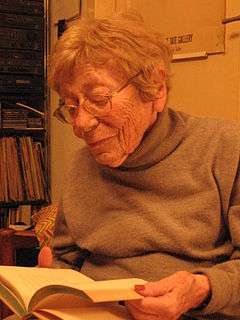 W
WIlse Maria Aschner, née Römer, was an Austrian journalist and survivor of the Holocaust.
 W
WDavid Josef Bach was an important and influential figure in the cultural life of early twentieth-century Vienna.
 W
WHugo Botstiber, was an Austrian Jewish musicologist, who studied under Robert Fuchs and Guido Adler. He was the secretary general of the Wiener Konzerthaus. In 1938, he left Nazi Austria.
 W
WNorbert Brainin, OBE was the first violinist of the Amadeus Quartet, one of the world's most highly regarded string quartets.
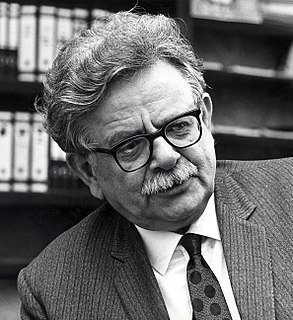 W
WElias Canetti was a German-language author, born in Ruse, Bulgaria to a merchant family. They moved to Manchester, England, but his father died in 1912, and his mother took her three sons back to the continent. They settled in Vienna.
 W
WOtto Erich Deutsch was an Austrian musicologist. He is known for compiling the first comprehensive catalogue of Franz Schubert's compositions, first published in 1951 in English, with a revised edition published in 1978 in German. It is from this catalogue that the D numbers used to identify Schubert's works derive.
 W
WBettina Ehrlich, née Bauer, was an Austrian painter and illustrator of children's books, many of which she also wrote. She lived briefly in Berlin and Paris, and from 1938 in England.
 W
WGeorg Ehrlich was an Austrian sculptor. He lived in London from 1938 and became a British citizen in 1947.
 W
WPaul Eisler was an Austrian inventor born in Vienna. Among his innovations were the printed circuit board. In 2012, Printed Circuit Design & Fab magazine named its Hall of Fame after Eisler.
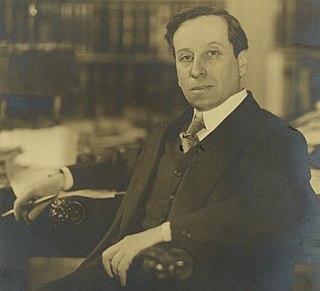 W
WRobert Eisler was an Austrian Jewish polymath who wrote about the topics of mythology, comparative religion, the Gospels, monetary policy, art history, history of science, psychoanalysis, politics, astrology, history of currency, and value theory. He lectured at the Sorbonne and Oxford, served briefly on the International Committee on Intellectual Cooperation in Paris after World War I, and spent fifteen months imprisoned in Dachau and Buchenwald, where he developed heart disease. He is best remembered today for advancing a new picture of the historical Jesus based on his interpretation of the Slavonic Josephus manuscript tradition, proposing a dual currency system to control inflation, and arguing for a prehistoric derivation of human violence in Man into Wolf: An Anthropological Interpretation of Sadism, Masochism, and Lycanthropy. His life and work intersected with those of Sigmund Freud, Carl Jung, Alois Riegl, Gilbert Murray, Karl Popper, Hugo von Hofmannsthal, G. R. S. Mead, Aby Warburg, Fritz Saxl, Gershom Scholem, Oskar Goldberg, Martin Buber, and Walter Benjamin.
 W
WSybille Bianca Giulietta Eysenck was a personality psychologist and the widow of the psychologist Hans Eysenck, with whom she collaborated as psychologists at the Institute of Psychiatry, University of London, as co-authors and researchers.
 W
WAnna Freud was a British psychoanalyst of Austrian-Jewish descent. She was born in Vienna, the sixth and youngest child of Sigmund Freud and Martha Bernays. She followed the path of her father and contributed to the field of psychoanalysis. Alongside Hermine Hug-Hellmuth and Melanie Klein, she may be considered the founder of psychoanalytic child psychology.
 W
WSigmund Freud was an Austrian neurologist and the founder of psychoanalysis, a clinical method for treating psychopathology through dialogue between a patient and a psychoanalyst.
 W
WErich Fried was an Austrian-born poet, writer and translator. He initially became known to a broader public in both Germany and Austria for his political poetry, and later for his love poems. As a writer he mostly wrote plays and short novels. He also translated works by different English writers from English into German, most notably works by William Shakespeare.
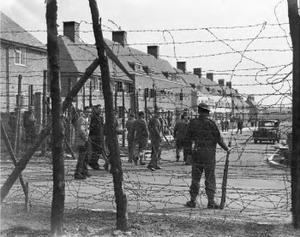 W
WHans Gerhard Fürth or Hans G. Furth was a Professor emeritus in the Faculty of Psychology of the Catholic University of America in Washington, D.C..
 W
WHans Gál OBE was an Austrian-British composer, teacher and author.
 W
WRudolf "Rudi" Gernreich was an Austrian-born American fashion designer whose avant-garde clothing designs are generally regarded as the most innovative and dynamic fashion of the 1960s. He purposefully used fashion design as a social statement to advance sexual freedom, producing clothes that followed the natural form of the female body, freeing them from the constraints of high fashion.
 W
WHilde Goldschmidt was a German expressionist painter and printmaker. Facing persecution under the Nazi regime she sought refuge in Britain during the Second World War before establishing herself in Austria in the 1950s.
 W
WSir Ernst Hans Josef Gombrich was an Austrian-born art historian who, after settling in England in 1936, became a naturalised British citizen in 1947 and spent most of his working life in the United Kingdom.
Heinz Hartmann, was a psychiatrist and psychoanalyst. He is considered one of the founders and principal representatives of ego psychology.
 W
WHilde Boman-Behram was an expressionist dancer, choreographer and dance teacher whose pioneering work in integrated dance transformed modern dance.
 W
WEva Maria Charlotte Michelle Ibbotson was a British novelist born in Austria to a Jewish family who fled the Nazis. She is known for her children's literature. Some of her novels for adults have been reissued for the young adult market. The historical novel Journey to the River Sea won her the Smarties Prize in category 9–11 years, garnered an unusual commendation as runner-up for the Guardian Prize, and made the Carnegie, Whitbread, and Blue Peter shortlists. She was a finalist for the 2010 Guardian Prize at the time of her death. Her last book, The Abominables, was among four finalists for the same award in 2012.
 W
WMarie Jahoda was an Austrian-British social psychologist.
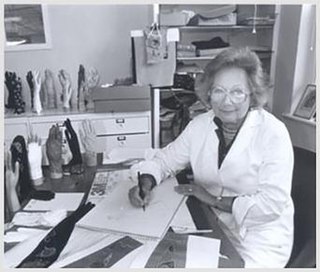 W
WCornelia James, was a British glovemaker and businesswoman. Born in Vienna, Austria to a Jewish family, James emigrated to the United Kingdom during World War II and founded her eponymous firm of glovemakers in 1946, which now holds a Royal Warrant.
 W
WRegina Kapeller-Adler, born Regina Kapeller, was an Austrian biochemist who, in 1934, devised an innovative test for early pregnancy based on the detection of histidine in urine. As a Jew, she was forced to leave Austria following the country's annexation into Nazi Germany in the Anschluss and went to work with the noted geneticist Francis Crew at the Institute of Animal Genetics at the University of Edinburgh.
 W
WOskar Leopold Karlweis was an Austrian-American stage and film actor, active internationally.
 W
WMartin Karplus is an Austrian and American theoretical chemist. He is the Director of the Biophysical Chemistry Laboratory, a joint laboratory between the French National Center for Scientific Research and the University of Strasbourg, France. He is also the Theodore William Richards Professor of Chemistry, emeritus at Harvard University. Karplus received the 2013 Nobel Prize in Chemistry, together with Michael Levitt and Arieh Warshel, for "the development of multiscale models for complex chemical systems".
 W
WHella Katz was the professional name of the Jewish photographer Helene Katz. Arriving in Vienna at the beginning of World War I, Katz became an influential photographer in the city in the interwar period. She has photographs in the collections of the Vienna Museum.
 W
WGeorg Knepler was an Austrian pianist, conductor and musicologist.
 W
WTheodor Kramer was an Austrian poet of Jewish origin. He was persecuted during the Second World War and fled to the United Kingdom. After his death his significant poetic output fell into obscurity, but has been rediscovered in recent decades. Several of his poems have been set to music.
 W
WSquadron Leader Robert Kronfeld, AFC was an Austrian-born gliding champion and sailplane designer of the 1920s and 30s. He became a British subject and an RAF test pilot. He was killed testing a glider in 1948.
 W
W"Rixi" Markus MBE was an Austrian and British international contract bridge player. She won five world titles, and was the first woman to become a World Grand Master within the World Bridge Federation. "In a 60-year career", Alan Truscott wrote in a bridge column 15 weeks after her death, "she had far more victories with partners of assorted nationalities than anyone else has ever had." She was appointed a Member of the Order of the British Empire (MBE) for contributions to bridge in 1974.
 W
WMax Ferdinand Perutz was an Austrian-born British molecular biologist, who shared the 1962 Nobel Prize for Chemistry with John Kendrew, for their studies of the structures of haemoglobin and myoglobin. He went on to win the Royal Medal of the Royal Society in 1971 and the Copley Medal in 1979. At Cambridge he founded and chaired (1962–79) The Medical Research Council (MRC) Laboratory of Molecular Biology (LMB), fourteen of whose scientists have won Nobel Prizes. Perutz's contributions to molecular biology in Cambridge are documented in The History of the University of Cambridge: Volume 4 published by the Cambridge University Press in 1992.
 W
WRose Rand was an Austrian-American logician and philosopher. She was a member of the Vienna Circle.
 W
WDame Lucie Rie, was an Austrian-born British studio potter.
 W
WPeter Schidlof was an Austrian-British violist and co-founder of the Amadeus Quartet.
 W
WHarry Seidler, AC OBE was an Austrian-born Australian architect who is considered to be one of the leading exponents of Modernism's methodology in Australia and the first architect to fully express the principles of the Bauhaus in Australia.
 W
WKarel Sperber OBE (1910–1957) was a Jewish Czechoslovak surgeon who travelled to England after the Nazi invasion of his country, but unable to practice medicine because he was an alien, took a job as a ship's doctor instead and was captured by Axis forces when his ship was sunk by the Germans.
 W
WHannah Steinberg was a pioneer of experimental psychopharmacology, the study of the interaction of drugs on the human mind.
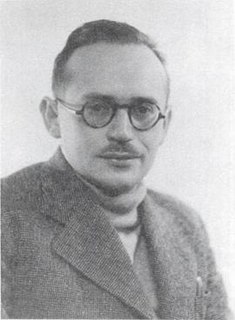 W
WFranz Baermann Steiner was an ethnologist, polymath, essayist, aphorist, and poet. He was familiar, apart from German, Yiddish, Czech, Greek and Latin, with both classical and modern Arabic, Hebrew, Turkish, Armenian, Persian, Malay, English, French, Spanish, Italian, Russian, six other Slavic languages, Scandinavian languages and Dutch.
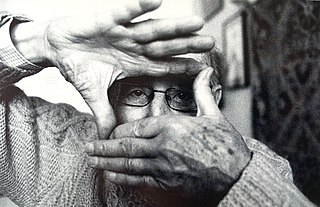 W
WWolfgang Suschitzky, BSC, was an Austrian-born British documentary photographer, as well as a cinematographer perhaps best known for his collaboration with Paul Rotha in the 1940s and his work on Mike Hodges' 1971 film Get Carter.
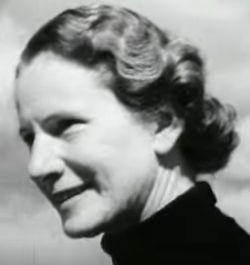 W
WGisela Taglicht was a notable New Zealand rhythmical dance and gymnastics teacher.
 W
WRichard Tauber was an Austrian tenor and film actor.
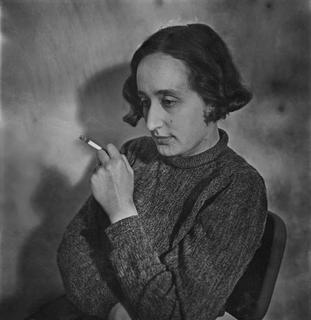 W
WEdith Tudor-Hart was an Austrian-British photographer and spy for the Soviet Union. Brought up in a family of socialists, she trained in photography at Walter Gropius's Bauhaus in Dessau, and carried her political ideals through her art. Through her connections with Arnold Deutsch, Tudor-Hart was instrumental in the recruiting of the Cambridge Spy ring which damaged British intelligence from World War II until the security services discovered all their identities by the mid-1960s. She recommended Litzi Friedmann and Kim Philby for recruitment by the KGB and acted as an intermediary for Anthony Blunt and Bob Stewart when the rezidentura at the Soviet Embassy in London suspended its operations in February 1940.
 W
WGeorge Weidenfeld, Baron Weidenfeld, was a British publisher, philanthropist, and newspaper columnist. He was also a lifelong Zionist and renowned as a master networker. He was on good terms with popes, prime ministers and presidents and put his connections to good use for diplomatic and philanthropic ends.
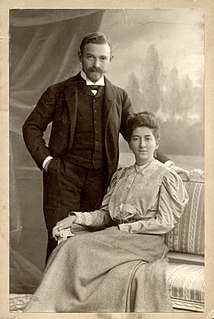 W
WDr Joseph Friedrich ("Fritz") Weleminsky, was a physician, a scientist and a privatdozent in Hygiene at the German University, Prague who, in the early 20th century, created an alternative treatment for tuberculosis, tuberculomucin Weleminsky.
 W
WJenny Weleminsky was a German-speaking Esperantist and translator who was born in Thalheim, Lower Austria and brought up there and in Vienna. Some of her translations of works by Franz Grillparzer and other notable Austrian writers were published in the literary magazine Literatura Mondo , which became home to an influential group of authors collectively known as Budapeŝto skolo, the Budapest school of Esperanto literature.
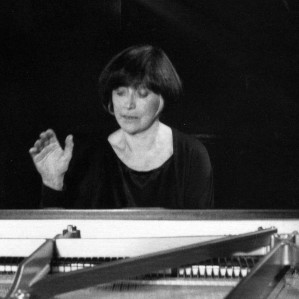 W
WKatharina Petra Wolpe was an Austrian born British pianist. Her repertoire included Austrian and German composers but in particular Schumann, Brahms, Arnold Schoenberg and her own father.